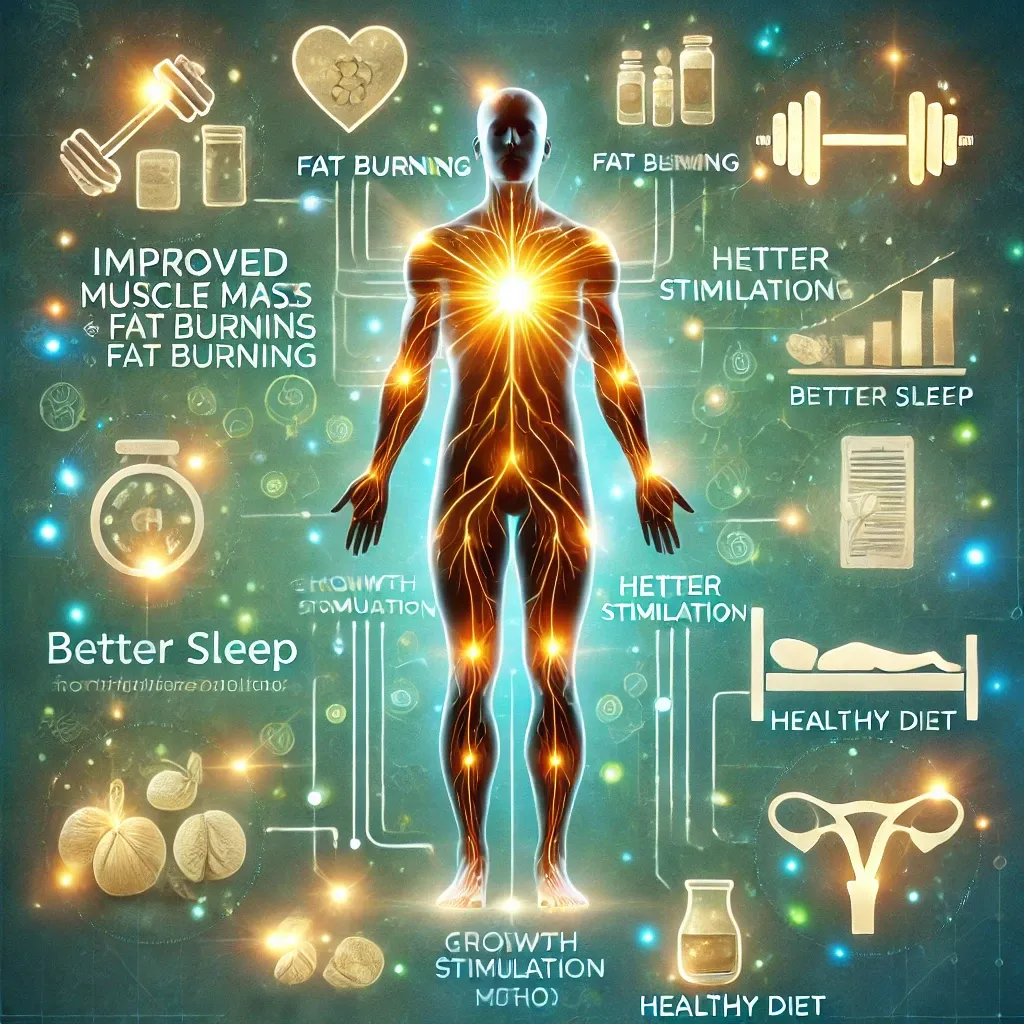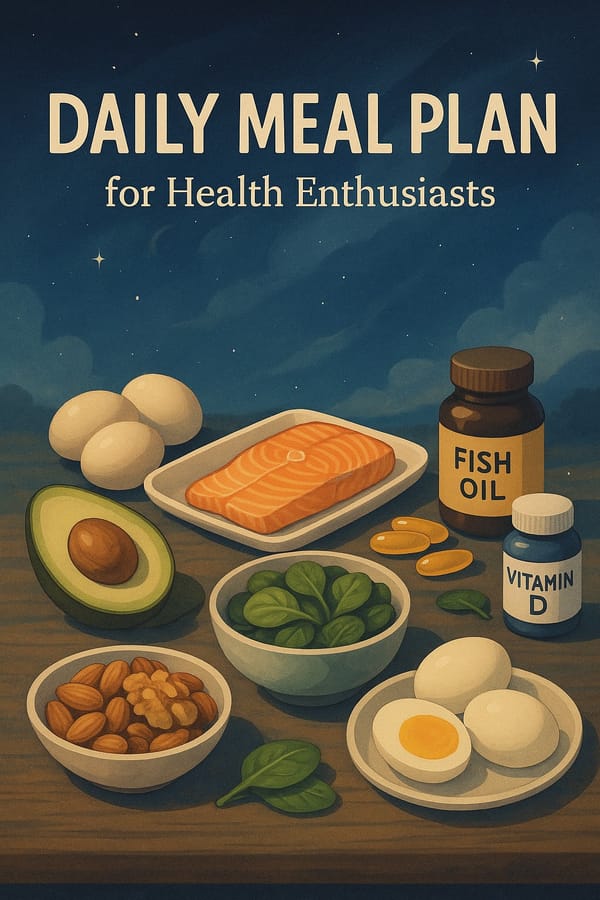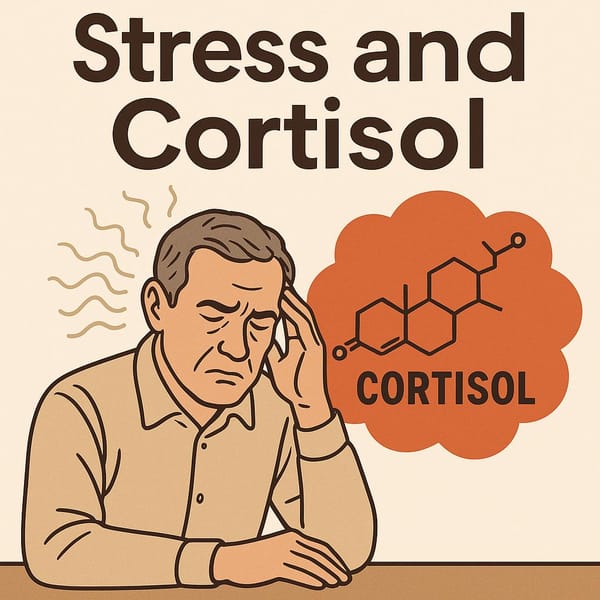Tips for Boosting Growth Hormone: Your Path to Health and Youthfulness Naturally

Introduction: Your Future Depends on Your Hormones
Ever wondered why some people look younger and healthier than their actual age? One key answer is Growth Hormone (GH), which plays a crucial role not just in growth but also in various bodily functions like cell repair, metabolism, and muscle building. This article delves into everything you need to know about Growth Hormone, from natural stimulation methods to the health benefits you can't afford to overlook.
What Is Growth Hormone and How Does It Work?
Growth Hormone is produced by the pituitary gland and is essential for growth and tissue repair in the body. It also helps balance metabolism and supports recovery processes. This hormone is most abundant during childhood and adolescence, when the body is growing rapidly.
Average Levels Across Age Groups:
- Children and Adolescents: The highest levels, averaging around 700-900 ng/mL
- Adults: Reduced to approximately 300-500 ng/mL
- Older Adults (50+ years): Further reduced to about 200-300 ng/mL
Growth Hormone levels decline by an average of 14-15% per decade after reaching adulthood. By the age of 50, the levels are halved compared to adolescence, significantly affecting the body's repair and metabolism processes.
Benefits of Growth Hormone:
- Promotes Growth: Especially in children and teenagers
- Builds Muscle Mass: Enhances protein synthesis
- Fat Burning: Increases energy utilization in cells
- Tissue Repair: Repairs skin, muscle, and bone cells
- Boosts Immune System Function: Strengthens the body’s defenses
Naturally Increasing Growth Hormone
1. Exercise
- Weight Training: Stimulates Growth Hormone effectively, particularly with heavy weights in short bursts
- High-Intensity Interval Training (HIIT): Elevates Growth Hormone levels more than regular cardio
2. Quality Sleep
- Growth Hormone is most actively released during deep sleep. Aim for at least 7-8 hours of quality sleep per night.
3. Diet
- Reduce Sugar: High sugar intake suppresses Growth Hormone
- Increase Protein: Foods rich in amino acids like arginine and glutamine help boost Growth Hormone
- Intermittent Fasting: Increases Growth Hormone by lowering insulin levels in the body
4. Stress Reduction
- Chronic stress elevates cortisol levels, which inhibits Growth Hormone release. Practices like meditation or yoga can help alleviate stress.
Growth Hormone Therapy: Benefits and Precautions
Supplementing with Growth Hormone Therapy
In cases where the body produces insufficient Growth Hormone, such as in Growth Hormone deficiency, therapy can offer benefits including:
- Increased muscle mass
- Reduced body fat
- Improved energy levels
Precautions
- Unnecessary use of Growth Hormone can increase the risk of heart disease, diabetes, and certain cancers.
- Always consult a doctor before considering Growth Hormone supplementation.
How Growth Hormone Affects Different Organs
- Brain:
- Enhances learning and memory
- Reduces the risk of dementia
- Heart and Blood Vessels:
- Lowers the risk of cardiovascular disease
- Helps regulate blood pressure
- Muscles and Bones:
- Increases bone density
- Reduces the risk of osteoporosis
- Skin:
- Reduces wrinkles
- Improves elasticity and skin brightness
Additional Methods for Stimulating Growth Hormone
Herbs and Supplements
- Herbs: Ginseng and Ashwagandha reduce stress and stimulate Growth Hormone
- Supplements: Arginine, glutamine, and BCAAs (Branched-Chain Amino Acids)
Biohacking Devices
- Hyperbaric oxygen therapy or circulation-boosting devices
Factors That Accelerate Growth Hormone Decline
- Lack of Quality Sleep: Poor or insufficient sleep significantly reduces Growth Hormone levels as deep sleep is the peak release period.
- Chronic Stress: Elevated cortisol levels from prolonged stress inhibit Growth Hormone secretion.
- High Sugar and Processed Foods: These increase insulin levels, suppressing Growth Hormone.
- Sedentary Lifestyle: Lack of physical activity leads to reduced hormone secretion.
- Alcohol and Smoking: These habits directly affect the pituitary gland and reduce Growth Hormone levels.
- Chronic Illnesses: Conditions like diabetes, obesity, or kidney disease can significantly lower Growth Hormone levels.
Conclusion: Boost Growth Hormone for Lifelong Health
Increasing Growth Hormone doesn’t have to be complicated, but it requires consistency and an understanding of your body. Natural methods like exercise, sleep, and a proper diet can help you safely reap the benefits of Growth Hormone. If you face issues with Growth Hormone, consult a healthcare professional for tailored advice.
Are you ready to start building a healthier you from the inside out? Share your favorite health practices in the comments below!



